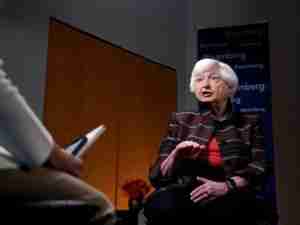How local franchises are becoming international brands
By: Reuters | Jan 14 2014 at 03:10 PM | International Trade
There’s a certain cachet to franchises that become international brands. It means the company has the finances, expertise and confidence to translate a franchise concept for a foreign culture. It may give the impression that the company has grown so big that one country can no longer contain it. But many U.S. franchise systems that boast international reach have just a few units in Canada—and that’s it. Not that expanding north of the border doesn’t take work, but it’s not quite as pioneering as exporting your burger brand to Nigeria or your electronics store to Yemen.
Many North American franchises are wary of selling units outside the region, or outside the English-speaking bubble. Doing so means adapting products and services to other cultures, operating in a different business climate, rerouting supply chains and relying on partners who are often unknown entities.
But franchise systems with global ambitions can get a huge advantage through the Franchise Trade Mission, a program under the U.S. Commercial Service (a branch of the U.S. Department of Commerce), in partnership with the International Franchise Association (IFA) and Franchise Times. An early franchise trade mission in 2011 saw 15 companies, including Applebee’s and RadioShack, travel to Mumbai, Hyderabad and New Delhi to meet with potential partners in the Indian market. Since then, the Commercial Service, which has staff based in most U.S. embassies around the world, and its partners have facilitated missions to China and to countries in Southeast Asia, Latin America, the Middle East and sub-Saharan Africa. This year it plans on returning to India and Southeast Asia.
These aren’t your run-of-the-mill golf-and-scotch business junkets. The companies that take advantage of the trade missions are striking deals, and the trips have become integral parts of their international expansion plans.
Jennifer Loffredo, the Commercial Service’s global franchise team leader for commerce, says the franchise missions were created after the government body, which facilitates business deals for American companies abroad, realized that its standard model just didn’t work for franchises. “For many industries, trade shows work really well. People show up and decide they want to buy this or that product,” she says. “But franchising doesn’t lend itself to trade shows. You’re dependent on who attends the show.
Let’s get real—an investor with deep pockets is probably not going to wander around a trade-show floor looking for business ideas.”
Instead, the Commercial Service created a more intimate matchmaking service for the franchise sector, a long process that begins months before the trade missions take place. First, Loffredo and her staff speak with members of the franchise community to figure out which markets interest them. If they get a vibe that North Africa or China is ripe for franchising, they’ll work to set up a mission to that area. Then they begin soliciting participants. Franchise companies interested in the mission—typically there are 15 to 20 slots available—must explain why they want to expand to that region and how they are prepared to take advantage of the mission (those that are “just looking” are discouraged). Companies selected to go on the trip provide the Commercial Service with details about operations, the type of logistical support they might need and what kind of investors they are seeking.
Then commercial specialists—usually foreign nationals or Commercial Service staff with local knowledge—begin looking for potential investors in the region and disseminating information about the franchise companies that will be visiting. “More often than not, our specialist is from that respective country,” Loffredo says. “They typically have worked for us for 10 or 15 years. They understand the market, speak the language, etc. They are our eyes and ears on the ground floor and know how to find master franchisees and area developers.”
Once on the trade mission, franchise representatives—often CEOs or executives in charge of international development—set up shop in a conference room and take meetings with nine or 10 potential investors. Afternoons involve tours of shopping centers or other potential franchise locations. Then participants take a break and prepare to do it all over again in at least two more cities or nations.
“What a trade mission does is give a franchise company a gold key to a nation directly from the Commercial Service,” says Nancy Weingartner, executive editor of Franchise Times. “The experts come to you. You have access to local lawyers. People come in and tell them the challenges of the market, like how much to pay for chicken, any problems with the supply chain—things you couldn’t learn any other way. It’s like getting an MBA about a country right off the bat and cutting off the learning curve.”
Rogelio Martinez, vice president of international franchise development for Los Angeles-based Tutor Doctor, attended his first franchise trade mission in 2012, visiting South America. “The results could not have been better,” he says. “Within six weeks of the mission we had signed up three franchisees: one in Bogota, Colombia; one in Panama City; and one in Santiago, Chile, who signed a three-unit deal.”
Returning to Chile to help with the launch, Martinez met with another investor who signed on for three units. “If I had sold one unit based on that trade mission, I would have counted it as a success,” he explains. “But to sell eight—that was above and beyond expectations. It’s really cost-effective and accelerated the process. It cost roughly $8,000. For me to do the same thing on my own, I would have invested $20,000 or $25,000.”
Martinez has also represented Tutor Doctor on an unofficial mission to Afghanistan and participated in an IFA/Commercial Service mission to the Middle East. The selected trips aren’t just a shot in the dark. Before applying for a trade mission, Martinez does his homework. If Tutor Doctor can’t meet a country’s licensing requirements within six months, he won’t go. Ditto if franchisees have little potential to make money; for example, tutoring prices are so cheap in Egypt that Martinez skipped the mission there. He also skipped the mission to China, since Tutor Doctor was not prepared with marketing operations and resources in Mandarin or Cantonese.
Hair Parra, vice president of international development for Atlanta-based Wing Zone, has been developing international franchises for years, previously with Domino’s Pizza and Papa John’s. He says the trade missions have made his job easier. “I’ve been impressed with every mission,” he says. “Each one has been better than the last. Once you go on your first one, you don’t stop.”
Parra says that without the Commercial Service laying the groundwork, he would not encounter the same caliber of investors and franchisees. Even so, not every trip results in a sale. During a mission to India, Parra was close to making a deal before it fell through. Two years later, however, he has reconnected with one of the groups he met on that mission and is close to signing his first Indian franchisee. On his trip to Nigeria, Kenya and South Africa in October 2013, he met many qualified investors but didn’t make any firm commitments. “You might not be able to make a sale on your first trip,” he says. “It might take one or two trips more.”
Then again, the opposite can be true. Before the 2012 trade mission to South America, the Commercial Service disseminated information about Wing Zone to potential investors. By the time he landed in Colombia, Parra had already sold out the country. “Because of what they did for us, I sold all of the master franchises for Colombia before the mission began,” he says. “It shortened my marketing time to zero.”
Many are surprised that the mission programs have not attracted more franchise companies. “I think sometimes franchises don’t understand the value of trade missions. Sometimes it’s a matter of timing. Sometimes it looks too expensive,” Weingartner says. “There are a variety of reasons franchisors haven’t signed up for these trips, but the word is getting out. For a company that is starting in international franchising, this is a great thing to do.”
The missions are “a wonderful tool,” Parra adds. “They have great information for U.S. companies to use. Why do you think we pay all these taxes? Their services aren’t very expensive for the quality of work they do. You get way more than you pay for.”
Loffredo—who is considering events in Mexico and Great Britain, locations that might be attractive to franchises considering expanding abroad for the first time—says quantifying the success of a franchise mission is more difficult than with other types of businesses, since it can take months for deals to go through and franchise units to open.
“Sometimes franchises need more support along the way after a trade mission,” she says. “We don’t start asking about successes for at least a couple of months to make sure the deals are signed, sealed and delivered. But we count an American franchise company coming into a new country as much of a success as an American company coming in to sell its widgets.” (Reuters)








